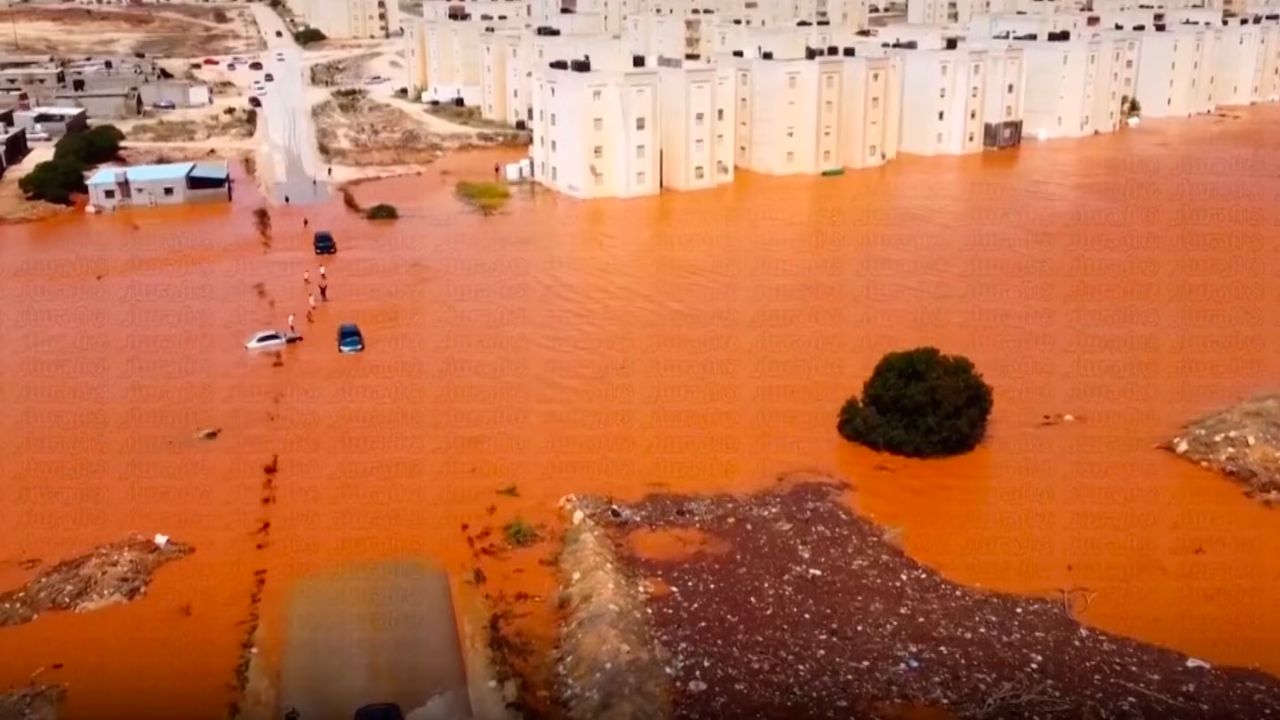Libya is grappling with an unprecedented catastrophe as torrential rains unleashed by storm Daniel have caused catastrophic flooding, claiming the lives of more than 2,000 people and leaving approximately 6,000 individuals missing. The disaster unfolded after the collapse of two dams, which swept entire neighborhoods into the sea.
Osama Hammad, the Prime Minister of eastern Libya, described the floods as “catastrophic” and confirmed the grim death toll during an interview with a local TV channel. The most severe devastation occurred in the port city of Derna, where entire communities were engulfed by the deluge.
In response to the crisis, Prime Minister Hammad urgently called upon medical professionals and rescue teams from across the nation to extend their assistance to Derna. Simultaneously, Deputy Prime Minister Ali al-Gatrani, also based in the east, issued an appeal for international aid to address the dire situation.
As a mark of mourning and respect for the victims, local authorities have declared three days of mourning across the affected regions.
Storm Daniel made landfall in eastern Libya on Sunday, leaving a trail of destruction in its wake. Abdul-Hamed Dbeibah, the Prime Minister of the Tripoli-based Government of National Unity, immediately ordered relevant authorities to remain on high alert and take all necessary measures to manage the storm’s aftermath. He expressed a firm commitment to protecting the people and mitigating the damage.
President of the Libyan Presidency Council, Mohamed Menfi, issued a call for international assistance to cope with the widespread devastation caused by the floods. He urged “brotherly and friendly countries” and international organizations to provide support to the affected areas. Menfi also designated Derna, Al-Bayda, and Shahhat as stricken cities, emphasizing the importance of residents following authorities’ instructions to overcome the crisis.
In the face of this humanitarian crisis, the Ministry of Social Affairs and the Libyan Red Crescent Society have mobilized to provide urgent assistance to those affected by the disaster.
Libya, a nation of six million people, has experienced deep political divisions since 2014, following the NATO-backed uprising against the late dictator Muammar Gaddafi in 2011. The country remains divided between rival administrations in the east and west, each backed by armed groups and militias.
As Libya grapples with this devastating natural disaster, the international community’s support and solidarity are crucial in helping the nation cope with the extensive loss of life and widespread destruction caused by the flooding.












































